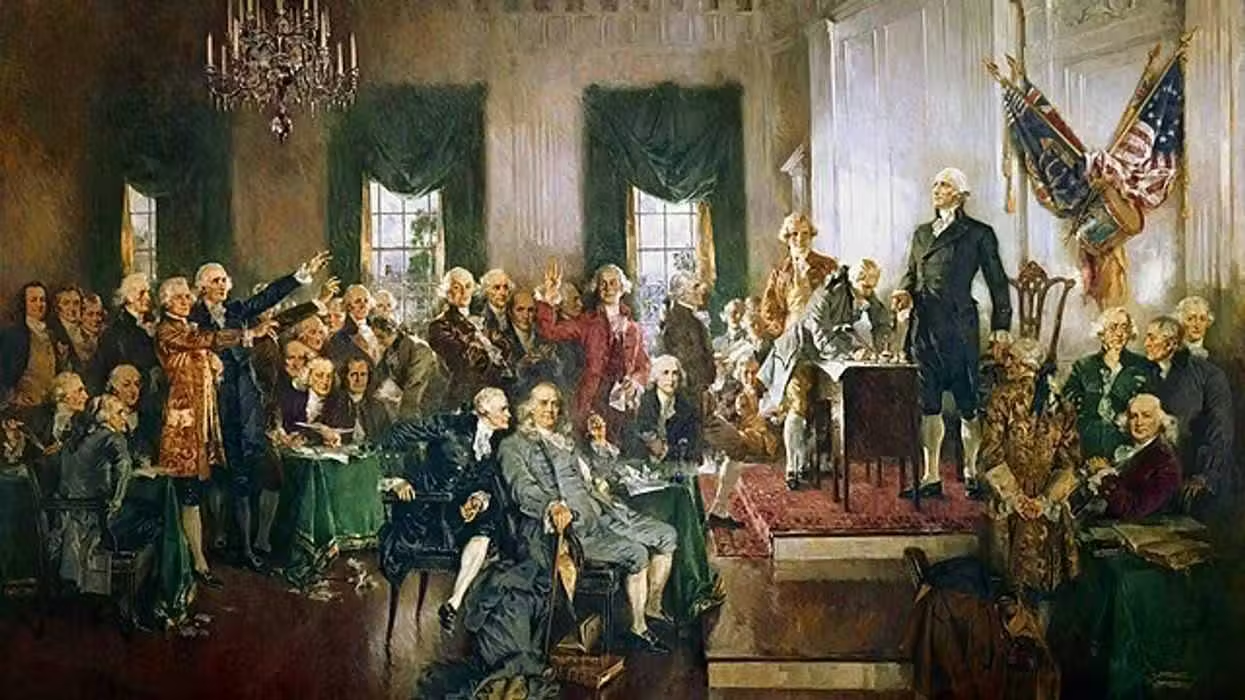
© 2025 Blaze Media LLC. All rights reserved.
Congress Still Finding Ways to Pass Earmarks Despite Ban -- Here's How (And a List)
April 17, 2012
"Congress doesn't have to disclose details -- including who requested the money to be spent"
 The government watchdog group Citizens Against Government Waste (CAWG) has released the 21st edition of its Congressional Pig Book (an in-depth examination of pork-barrel spending) and it has some good news and some bad news.
The government watchdog group Citizens Against Government Waste (CAWG) has released the 21st edition of its Congressional Pig Book (an in-depth examination of pork-barrel spending) and it has some good news and some bad news.
The good news is that since the House voluntarily imposed a ban on pork-barrel spending in 2010 (the Senate in 2011), the number of earmarks has plummeted by 98.3 percent (from 9,129 to 152) and the cost has decreased by 80 percent (from $16.5 billion to $3.3 billion).
Wait. Although those numbers are good -- quite good, actually -- why isn’t the decrease in both the number and cost of earmarks 100 percent? We thought there was a voluntary moratorium on pork-barrel spending.
That’s where the bad news comes in.
"Congress has figured out ways to stuff earmarks into spending by calling them different names," CAWG president Tom Schatz explains, according to CBS News.
The CAWG report explains one of the problems with the self-imposed moratorium:
The supposed lack of earmarks resulted in a completely opaque process. Since earmarks were deemed to be non-existent, there were no names of legislators, no information on where and why the money will be spent, and no list or chart of earmarks in the appropriations bills or reports.Earmarks were scattered throughout the legislative and report language, requiring substantial detective work to unearth each project. While the lower number and cost of earmarks is a vast improvement over prior years, transparency and accountability have regressed immeasurably.
"The transparency is much more difficult and it will be hard to see where, exactly, the money is being spent as it goes out the door," Schatz said.
"Since they're technically not called 'earmarks' under Congress' definition, Congress doesn't have to disclose details -- including who requested the money to be spent," he adds.
According to the CAWG report, anything that satisfies at least two the following criteria is considered an earmark:
- Requested by only one chamber of Congress
- Not specifically authorized
- Not competitively awarded
- Not requested by the president
- Greatly exceeds the president's budget request or the previous year's funding
- Not the subject of congressional hearings
- Serves only a local or special interest
And these are some of the projects CAWG found that violate the moratorium:
- $120 million to the military to research alternative energy.
- $255 million to upgrade the Army's M1 Abrams tanks.
- $14 million for hydropower construction (the report believes this earmark is meant to benefit New York based on Sen. Chuck Schumer [D-NY] past involvement in hydropower earmarks).
- $10 million for the Chicago Sanitary and Ship Canal Dispersal Barrier.
- $48 million for the National Domestic Preparedness Consortium.
- $3.4 million for national fish hatchery system operations.
- $15 million for Rural Hospital Flexibility Grants (Flex) through the Department of Health and Human Services.
- $5 million for abstinence education.
- $5.8 million for the East-West Center in Hawaii meant to improve relations among Pacific nations. The center's recent projects include an endowment to honor President Obama's mother.
"Because a moratorium is not a permanent ban on earmarks, a bipartisan group of senators is proposing such a ban," Schatz said. "Since that effort has been rejected so far, it is reasonable to conclude that a majority of senators would like to restore earmarks."
"Such a decision would bring back a deceptive practice that encourages backroom deal-making, vote swapping, and other political gamesmanship. It would also reverse the substantial progress that has been made in reducing the number and cost of earmarks and outrage the vast majority of taxpayers who continue to oppose any earmarks," he added.
Read the full report here (via Scbibd and CBS News):
This article has been updated.
Want to leave a tip?
We answer to you. Help keep our content free of advertisers and big tech censorship by leaving a tip today.
Want to join the conversation?
Already a subscriber?
more stories
Sign up for the Blaze newsletter
By signing up, you agree to our Privacy Policy and Terms of Use, and agree to receive content that may sometimes include advertisements. You may opt out at any time.
Related Content
© 2025 Blaze Media LLC. All rights reserved.
Get the stories that matter most delivered directly to your inbox.
By signing up, you agree to our Privacy Policy and Terms of Use, and agree to receive content that may sometimes include advertisements. You may opt out at any time.





